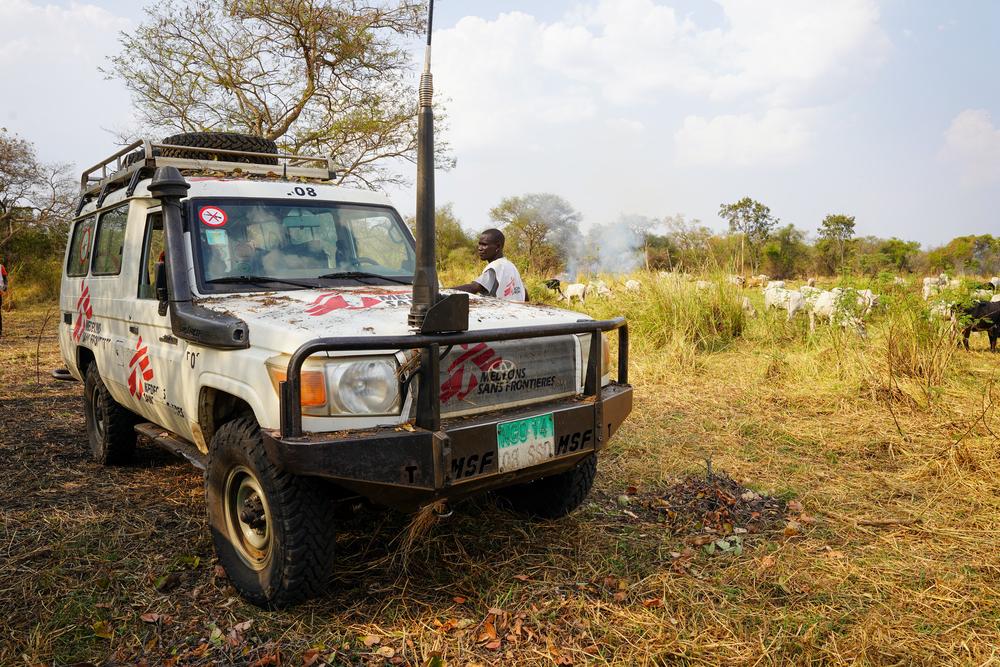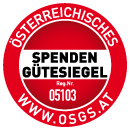No. There are no limitations of citizenships regarding your application with MSF! Your citizenship only becomes relevant at a later stage when we need to get entry visas for the mission countries.
Here we answer the most frequently asked questions about our international projects. You are also welcome to attend one of our info sessions, where you will have the opportunity to clarify any remaining questions.
Working abroad with Médecins Sans Frontiéres
No. The recruiting team of MSF Austria is in charge of all applications coming from applicants with residency in the following countries: Austria, Croatia, Czech Republic, Hungary, Kosovo, Republic of Moldova, Montenegro, Romania, Slovakia or Slovenia.
All persons with a residency in one of the abovementioned countries can apply with MSF Austria. Persons with a residency in a different country than the ones mentioned can find out here where they can apply: www.msf.org/work-msf
Please note: The Assessment Centre takes place at the MSF Austria offices in Vienna. The assessment center may take up to two days and we cannot cover any expenses related to this trip.
Should this question apply to you, we like to discuss this on an individual basis. It is highly important to avoid any conflicts of interest and to make sure that the requirements for working with us are met.
Should this question apply to you, we like to discuss this on an individual basis. The standards in terms of living conditions and medical care in the countries we work in can hardly be compared to the ones most applicants are used to. Related consequences (e.g. lack of accessibility) are difficult to manage in a number of projects. Sending people on field missions with special needs may therefore be difficult or impossible (lack of mobility may pose a safety risk).
A chronic illness is generally not an argument against an assignment abroad. However, please keep in mind that, for example, the procurement of special medicines or the storage of medicines could be difficult depending on the project. Regular check-ups with specialists may also be difficult or even impossible to organize on site, depending on the illness. Should this question apply to you, we like to discuss this on an individual basis.
Yes, vacancies keep coming up which we advertise here.
No. There is neither a minimum nor a maximum age limit to be able to leave on missions. It is important that you meet the requirements and feel fit enough to work in the field. Please consider both climate and living conditions. The only restriction is the age limit for work permits that a few countries have issued.
Prerequisites for applying at Médecins Sans Frontiéres and going on mission
Professional experience that is relevant for applying at MSF should have been gained and practiced no longer than two years ago.
No. It is not possible to apply for a specific country or a specific project. After a successfully completed application process, you will be included in the "pool" of employees (e.g. pool of surgeons or pool of logisticians). Criteria for the "matching" - i.e. the selection of a suitable project - are not only your professional qualifications but also your language skills and your time availability. In humanitarian aid, assignments are primarily determined by the needs of the projects. In this phase, there may be longer waiting times. Great flexibility is required here.
In general, it is not possible to be accompanied by your partner and children if you are leaving on mission for the first time. However, if you are looking for a longer-term career with MSF, there are a few positions for coordinators that allow for longer-term planning with partners and children.
Although we acknowledge that risks cannot be ruled out completely, we do whatever we can to manage and minimize possible hazards by applying strict safety protocols. Safety of MSF staff is of utmost importance.
Basic knowledge in tropical medicine, infectiology (especially HIV and tuberculosis), public health and epidemiology is required in some projects for the following professional groups: General Practitioners, Pediatricians, Nurses and Midwives. Therefore, we recommend the completion of a tropical course before the first assignment. However, MSF does not cover the cost of the course, so participation is not mandatory. Without a tropical course, depending on other previous experience, there may be a longer waiting period for a first assignment. Relevant work experience in Africa, Asia or Latin America can replace the course.
Salary and insurance
Yes. You are entitled to take leave in accordance with legal requirements. Many projects have regulations for holiday periods in terms of time and duration. During a nine-month mission, for example, a one-week holiday ought to be taken every three months. Here, too, great flexibility is required, however, as it is not always possible to plan the long-term absence of individual employees from projects. Details should be arranged with superiors directly in the field.
If you are a legal resident in Austria, you will receive a work contract in compliance with Austrian legal regulations which also includes social security coverage (Austrian Health Insurance Scheme - ÖGK). In addition (and this also includes everyone who does not have a residence in Austria), MSF will arrange for you to be covered by an international health insurance scheme, which will bear any costs that are not covered by the Austrian Health Insurance. Insurance coverage remains valid until three months after you have completed your MSF mission.
Medical care will be provided directly in the field or in the nearest hospital (selected for mission staff). Any treatment costs will be borne by the health insurance. If necessary for medical reasons, you will be repatriated to a European hospital or your place of residence. Again, such measure is also covered by the insurance.
Safety in our international projects
We provide emergency medical aid to people in areas where no one else goes. To reach the populations most in need of our support, we often work in conflict regions or post-war situations. Each region comes with its own unique risks depending on the specific circumstances.
As part of a field team, you will often find yourself in unstable or insecure environments. Working in these regions inherently involves a certain level of risk—encounters with danger cannot always be avoided.
Our standards for risk mitigation include:
Risk Management
We understand that it is impossible to eliminate all risks, but we do everything possible to minimize them. A key aspect of risk management is the implementation of strict safety protocols.
Before starting a new project and throughout its duration, we conduct risk analyses. Each aid project has specific and detailed security regulations and plans, which define strategies, safety measures, and responsibilities.
These protocols consider various safety risks and outline procedures and measures to follow, depending on the level of threat.
Safety Protocols
All field staff must adhere strictly to safety protocols and regulations. The correct behavior and mindset are the best forms of protection.
Working with MSF is a voluntary decision that should be well-considered and made independently. Everyone who works with MSF accepts the organization's decision to operate in environments where safety risks are present. Failure to comply with safety protocols may result in dismissal.
To understand what safety regulations to expect, we categorize our projects into different risk levels:
Low Risk
For low-risk missions, safety regulations are not very strict. For instance, there may be no curfews, relatively free movement is allowed, public transportation can be used, and even vacations within the same country might be possible.
Medium Risk
Many of MSF's mission areas fall under a medium-risk level. Depending on the context, the following regulations may apply:
- Curfews
- Restricted movement
- Carrying an MSF ID at all times
In medium-risk missions, it is often mandatory to provide detailed information when traveling from one location to another. You may also need to carry a radio or mobile phone to report your exact position.
In some contexts, there are restrictions on behavior in the field and access to the local population. Alcohol consumption and clothing choices may also be regulated, as these factors can affect the safety of team members or the project as a whole.
Everyone working on an MSF project represents the organization on-site. The words and actions of each team member affect the safety of individuals and the entire team. There is no "day off" from this responsibility.
High Risk
For missions with high safety risks, freedom of movement is severely restricted. All team members must follow highly specific instructions and procedures.
In some cases, activities may need to be temporarily suspended, and the team evacuated to a safe location. Most of the time, work resumes once the situation stabilizes.
In extreme scenarios, it may be impossible to leave a location due to the security situation. In such cases, staying on-site may be safer than attempting an evacuation.
Chain of Responsibility
Field staff must always adhere to safety regulations and procedures during their assignments. There is a clear chain of responsibility for safety management:
- Project Coordination: Responsible for the safety of the team at the project level.
- Mission Coordination: Ensures the safety of all MSF projects within a specific country.
- Headquarters Teams: Ultimately responsible for overseeing safety at the organizational level.
Medical staff and, in some cases, nurses may work alongside the medical coordination in the capital to address the health of other team members. All team members must respect and follow the given instructions.
Personal Responsibility
MSF's comprehensive risk management guidelines and procedures are built on a shared responsibility between the staff member and the organization. Beyond this shared responsibility, you, as an individual, must be able to assess the potential negative consequences of your words or actions for yourself and others.
If you feel uncomfortable with the security situation, you can decide to leave the project at any time—provided the project coordination or mission leadership deems it safe to do so. MSF will ensure that all necessary arrangements are communicated to you before departure. However, the final decision rests solely with you.
MSF does not delegate safety management to any other organization under any circumstances.
Specific Risks
Working on an MSF project can involve various risks, including the following:
Environmental Hazards
Environmental hazards such as natural disasters, disease outbreaks, and high levels of stress can occur in any MSF project. There are numerous ways to mitigate the risk of contracting diseases like malaria, tuberculosis, HIV, meningitis, and hepatitis—for example, through malaria prophylaxis, vaccinations, or using condoms.
Traffic Accidents
Traffic accidents are the most common cause of injury and fatalities among field staff. The risk is heightened by unfamiliar driving habits and traffic regulations in different countries. In conflict zones, the traffic situation can become particularly chaotic and dangerous. In most MSF projects, local drivers are employed.
Petty Crime
Petty crime can occur anywhere, especially in crowded public places. In unfamiliar surroundings, one can quickly lose orientation, which thieves may exploit. Foreign field staff are also at an increased risk of fraud and robberies, including armed carjackings.
Violence
Violence often poses a risk. Women may be particularly vulnerable to sexual assault in certain circumstances and need to exercise extra caution. In extreme situations, MSF and other NGOs may face looting, hostage-taking, or attacks. Field staff may come under fire or face the risk of severe injury or death from unexploded ordnance, landmines, bombings, or airstrikes.
Even though MSF meticulously addresses all aspects of safety, risks cannot be completely eliminated. Our goal is to understand potential risks, reduce them as much as possible, and provide thorough information to everyone exposed to these risks.
What does the application process looks like?
- You participate in one of our online information sessions.
- You will receive a link to our application portal via email (our recruiters are available to assist you with any questions).
- This is followed by a detailed interview and, depending on your job profile, an additional test to evaluate your technical qualifications.
- We then plan an assessment center with you. At this stage, the focus is no longer on technical skills but rather on your personal suitability for an international mission with MSF. This includes evaluating your "soft skills," personal attitude, general understanding of Doctors Without Borders as a humanitarian organization, planning and organizational skills, teamwork, leadership qualities, and more.
- Upon successful completion, you will become part of the MSF Austria staff pool. Pool: the collective group of employees available for assignments, organized by professional categories.
- Based on your stated availability, open positions in project countries, language skills, and other factors, our career managers will identify a suitable first mission for you.
We maintain high standards for our application processes—whether for office positions, info stand roles, or field missions—and strive to inform applicants transparently about decisions. If you feel you have not been treated fairly, you have the option to submit a complaint to us (this can, of course, be done anonymously).
zum Kontaktformular


